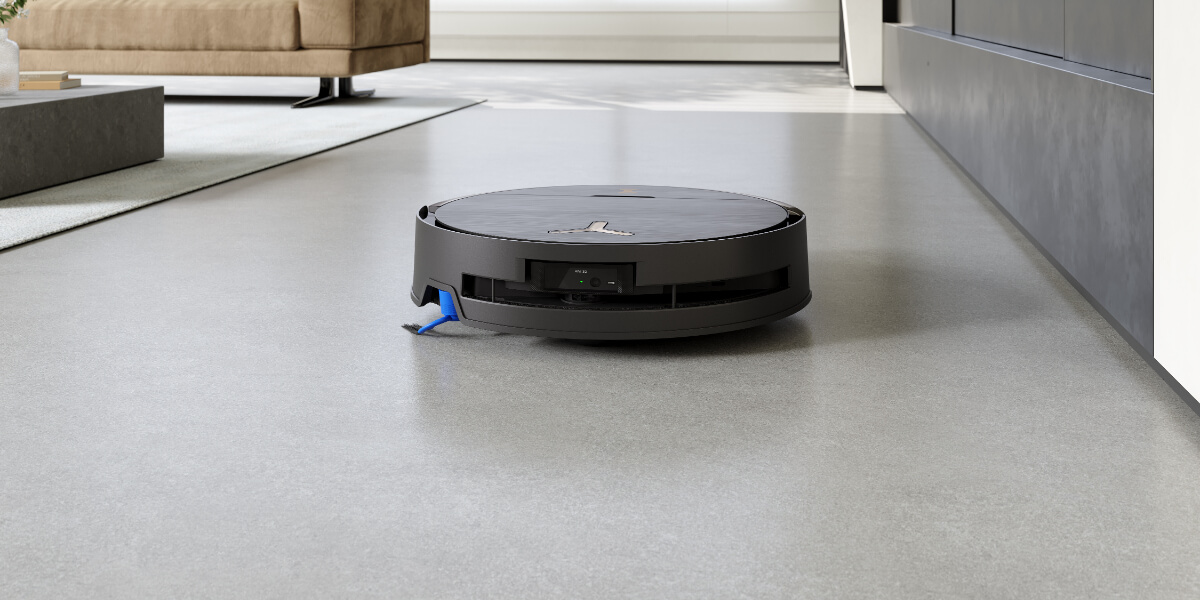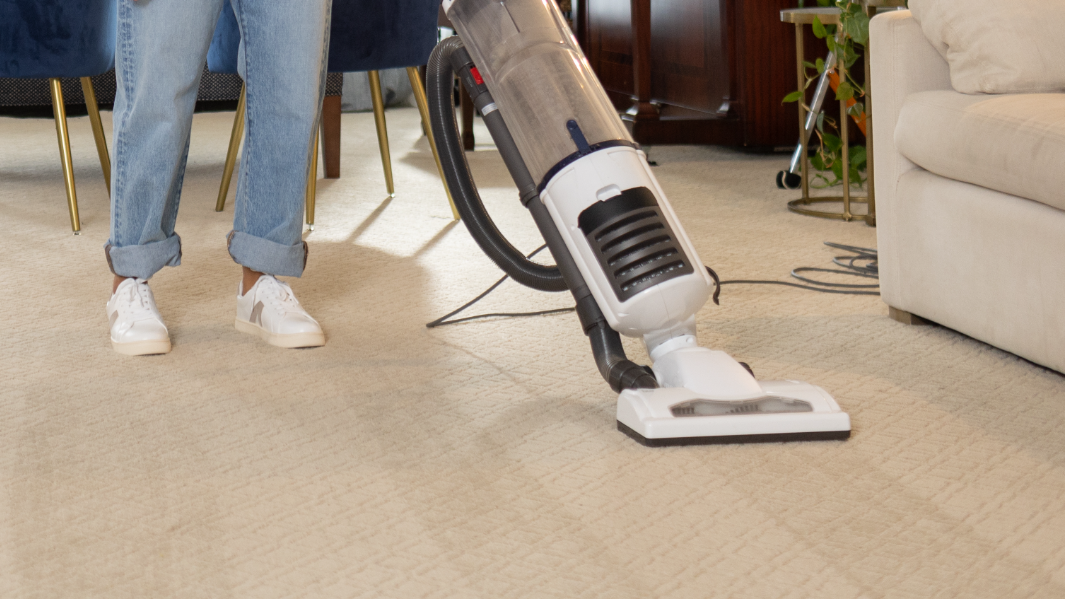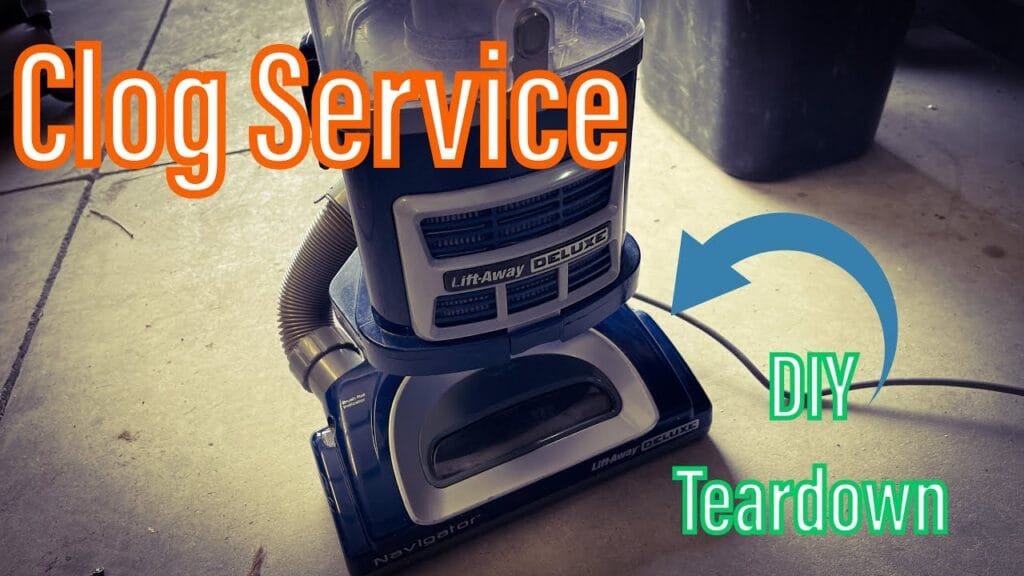Is your vacuum suddenly making strange noises? That annoying sound could mean more than just a minor hiccup.
If you ignore it, your vacuum might stop working when you need it most. You probably want to fix the problem quickly, but first, you need to understand what’s causing those weird noises. Keep reading, and you’ll discover simple reasons behind the sounds and easy steps to get your vacuum running smoothly again.
Don’t let a noisy vacuum slow you down!
Common Vacuum Noises
Vacuum cleaners often make noises during use. Some sounds are normal. Others may signal a problem. Knowing common vacuum noises helps you spot issues early. This keeps your vacuum working well longer.
Grinding Sounds
Grinding noises usually mean something is stuck. It may be dirt, hair, or debris caught in the brush roll. Sometimes, the motor bearings wear out and create grinding sounds. Check the brush and clear any blockages. If the noise continues, the motor might need repair.
Squealing Or Whining
Squealing often comes from a loose or worn belt. The belt moves the brush roll, and if it slips, it makes noise. A whining sound could mean motor problems. Clean the belt area and replace worn belts. Persistent whining might require a technician’s help.
Rattling And Banging
Rattling noises happen when small objects get inside the vacuum. Coins, screws, or stones can cause banging sounds. Remove the vacuum bag or canister and check for foreign items. Tighten any loose parts to stop rattling. This noise warns of internal damage risk.
Hissing Or Whistling
Hissing or whistling sounds show air leaks. These leaks reduce suction power. They occur if the vacuum bag is full or there is a crack in the hose. Replace full bags and inspect hoses for holes. Fixing leaks restores strong suction and quiet operation.

Credit: www.ecovacs.com
Typical Causes Of Noises
Strange noises from your vacuum can be annoying and worrying. These sounds often signal common problems inside your machine. Understanding typical causes helps you fix the issue quickly. Many noises come from parts that are dirty, worn, or loose. Checking these areas saves time and money.
Clogged Filters And Hoses
Filters and hoses block dirt and dust. Over time, they get clogged. This blockage makes the vacuum work harder. It can cause a high-pitched or rattling noise. Cleaning or replacing filters and clearing hoses often solves the problem.
Worn Or Damaged Belts
Belts connect the motor to the brush roll. They wear out or break after long use. A slipping or broken belt causes a squealing or grinding sound. Replacing the belt usually stops these noises and improves performance.
Motor Issues
The motor powers your vacuum. Motor problems cause loud buzzing, humming, or grinding sounds. Dust buildup or worn parts inside the motor can create noise. Sometimes, professional repair or motor replacement is needed.
Debris In Brush Roll
Hair, strings, and dirt wrap around the brush roll. This debris makes strange noises while the brush spins. It can also slow down cleaning. Removing debris regularly keeps the vacuum quiet and efficient.
Loose Parts Or Screws
Vibrations during use can loosen screws or parts. Loose components rattle or knock inside the vacuum. Tightening screws and securing parts stops these noises. Regular checks prevent damage and noise buildup.
Quick Fixes To Try
Vacuum cleaners can make strange noises for many reasons. Some problems are easy to fix. Trying simple steps can save time and money. These quick fixes often stop weird sounds fast.
Cleaning Filters And Hoses
Dirty filters block airflow. This causes the vacuum to work harder and sound strange. Remove and clean filters regularly. Check hoses for clogs. Clear any dirt or debris inside the hose. Clean parts help the vacuum run quietly.
Replacing Or Adjusting Belts
Worn or loose belts cause squeaking or rattling sounds. Check the belt for cracks or damage. Replace old belts with new ones. Tighten loose belts carefully. Proper belt tension keeps the vacuum smooth and quiet.
Clearing Brush Roll Debris
The brush roll often gathers hair and threads. These block movement and cause noise. Turn off the vacuum and flip it over. Cut away tangled threads and hair. Clean brush rolls spin freely and reduce noise.
Tightening Loose Components
Loose screws and parts can rattle loudly. Inspect the vacuum for loose pieces. Use a screwdriver to tighten all screws. Secure parts stop shaking sounds. A tight vacuum runs more quietly and safely.
Lubricating Moving Parts
Dry parts create grinding or squeaking noises. Apply a small amount of lubricant to bearings and joints. Use oil made for appliances. Lubrication helps parts move smoothly. Quiet operation lasts longer with regular care.

Credit: www.ecovacs.com
When To Seek Professional Help
Knowing when to get professional help can save your vacuum from serious damage. Some noises signal big problems. These issues need a skilled technician to fix them safely. Acting fast can stop costly repairs or even replacement. Here are key signs to watch for.
Persistent Motor Noise
A loud, ongoing motor noise is a warning. It means the motor parts may be failing or blocked. The motor could overheat and break down. A professional can check motor bearings and wiring. Do not keep using the vacuum with this noise.
Electrical Smells Or Sparks
Smelling burning or seeing sparks is dangerous. It shows electrical parts are shorting or damaged. This can cause fire or electric shock. Turn off the vacuum immediately. Call a technician to inspect and fix electrical faults safely.
Repeated Belt Failures
Belts that break often mean a bigger issue. It could be a misaligned brush roll or worn motor pulley. Replacing belts alone won’t help. A professional can find the root cause and prevent more damage. Avoid using the vacuum until it is fixed.
Preventing Future Noise Issues
Preventing future noise issues with your vacuum helps it run smoothly. Quiet operation means better cleaning and longer life for your machine. Small habits can stop many noise problems before they start. Simple care and smart use keep your vacuum working well.
Regular Maintenance Tips
Clean the vacuum filter often. A dirty filter makes the motor work harder. Check the brush roll for hair and dirt. Remove any blockages inside the hose. Tighten loose screws that cause rattling sounds. Replace worn parts quickly to avoid damage. Regular checks prevent noise and keep performance high.
Proper Vacuum Usage
Use the vacuum on surfaces it is made for. Avoid sucking large objects or sharp items. Push and pull the vacuum gently. Do not force it over thick carpets. Follow the instructions in the user manual. Proper use reduces strain and noise from the motor and parts.
Storing Your Vacuum Correctly
Store the vacuum in a dry, cool place. Keep it upright to protect the brush roll. Avoid placing heavy items on top of it. Wrap the cord loosely to prevent damage. Good storage stops parts from bending or breaking. This keeps your vacuum quiet and ready to use.

Credit: www.zerorez.com
Frequently Asked Questions
Why Does My Vacuum Make Loud Grinding Noises?
Loud grinding noises often mean a worn-out motor or brushroll issue. Check for debris stuck in the brushroll or motor area. Regular cleaning and timely replacement of parts prevent damage. If noise persists, consult a professional for repair or motor replacement.
What Causes A Vacuum To Squeak During Use?
Squeaking usually comes from worn belts or dry bearings. Inspect the belt for cracks or looseness and replace if needed. Lubricate bearings if accessible. Regular maintenance keeps your vacuum running smoothly and quietly.
Can A Clogged Vacuum Filter Cause Strange Noises?
Yes, clogged filters restrict airflow, causing the motor to strain and make odd noises. Clean or replace filters regularly to ensure optimal suction and reduce noise. Proper filter care prolongs vacuum life and maintains performance.
How To Fix A Rattling Sound In My Vacuum?
Rattling sounds often mean loose or broken parts inside the vacuum. Check for loose screws, debris in the hose, or broken attachments. Tighten or replace components as needed. Regular inspection helps avoid rattling noises and improves vacuum efficiency.
Conclusion
Strange noises from your vacuum can signal small problems. Check for blockages or loose parts first. Clean filters and brushes often to keep it quiet. Listening closely helps find the noise source fast. Fixing issues early saves time and money later.
A smooth-running vacuum makes cleaning easier and faster. Keep your machine in good shape for longer use. Don’t ignore odd sounds; they mean your vacuum needs help. Taking simple steps can stop those weird noises now.





